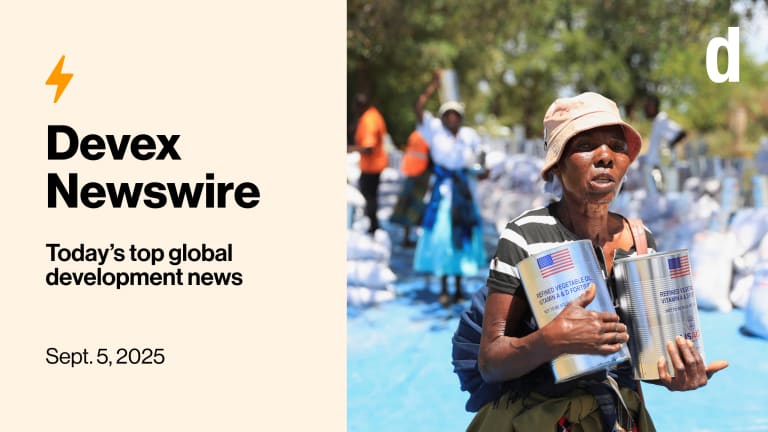Dutch biotechnology firm Crucell said April 6 it had agreed with Britain’s GlaxoSmithKline to jointly develop a malaria vaccine candidate, without disclosing financial details. The deal is an extension to an earlier program agreed in October 2003 between Crucell, GSK and the Walter Reed Army Institute of Research to evaluate Crucell’s malaria vaccine candidate in pre-clinical studies. Crucell said pre-clinical data indicated greatly enhanced immune responses against the malaria parasite when Crucell’s Adenovirus technology and GSK’s RTS,S/AS technology are used in combination, versus either component alone. “I am confident a partnership of this kind will allow us to take a vital step towards our goal of bringing meaningful innovation to global health,” Crucell Chief Executive Ronald Brus said in a statement, as cited by Reuters. The companies aim to start human clinical studies and seek third-party funding to advance the program into a phase I/IIa clinical challenge trial in the United States.
U.N. Secretary-General Ban Ki-moon said he was shocked by the reported deaths and injuries in Kyrgyzstan, where demonstrators in the country’s capital have clashed with the police, and once again appealed to all concerned parties to show restraint. The Secretary-General “urgently appeals for dialogue and calm to avoid further bloodshed,” his spokesperson said. “The Secretary-General is following the situation closely,” the spokesperson added. Demonstrators protesting against the rising cost of heating fuel and electricity took to the streets in the Kyrgyz capital, Bishkek, attacking President Kurmanbek Bakiyev’s offices and forcing State radio and television off the air briefly, according to media reports. 99Police are said to have opened fire in a bid to disperse the crowd, and the President is also reported to have declared a state of emergency in some areas.
Kofi Annan has announced that his Global Humanitarian Forum will close because of a lack of funds. The former U.N. Secretary-General said Wednesday that the Geneva organization he founded in 2007 was unable to raise enough cash to stay afloat because of the global economic crisis. He says the Swiss government would assume the forum’s debts when it closes. Annan says “it is a great disappointment to all of us that this promising project had to end this way.” Beside financial problems, the forum was unable to define itself in three years of existence. Its most concrete project was to install weather data collectors on mobile phone towers in Africa to provide better climate data to impoverished communities.
People in the Arab world need fuller and freer information about shrinking water supplies but their governments are withholding it for fear of fuelling unrest, a U.N. expert said last week. Arable land makes up just 4.2 percent of the Middle East and North Africa and is expected to shrink due to climate change. “Arab countries do not disclose enough information on their water out of concern that transparency could fuel unnecessary public concern and unrest,” said Hosny Khordagui, Regional Program Director of the UNDP Water Governance Program for Arab States at a UNDP round-table on Arab environmental issues, as cited by Reuters. Technology used to discover underground ice on Mars could also be used in the search for water on Earth and help ward off conflict in the arid Middle East, said Essam Heggy, a NASA scientist, as cited by AFP. The same radar technology should be used in the vast deserts of the Middle East and North Africa, scientist Essam Heggy told a U.N.-sponsored water conference.
Three United Nations agencies are hailing what they described as a “ground-breaking” new act that legalizes the right to free and compulsory education for all children between the ages of 6 and 14 in India. UNICEF estimates there are eight million children in this age group, mostly girls, who are out-of-school in India. “Tens of millions of children will benefit from this initiative ensuring quality education with equity,” said UNICEF Representative in India Karin Hulshof. The Right to Education Act will “propel India to even greater heights of prosperity and productivity for all guaranteeing children their right to a quality education and a brighter future,” she added. UNICEF, along with UNESCO and the International Labor Organization (ILO), said that without India, the world cannot reach the Millennium Development Goal (MDG) of having every child complete primary school by 2015. “This act is an essential step towards improving each child’s accessibility to secondary and higher education, bringing India closer to achieving national educational development goals, as well as the MDGs and Education for All (EFA),” UNESCO New Delhi Director Armoogum Parsuramen said.








